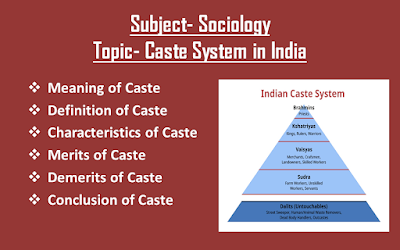Association- Meaning, Definition, Characteristics
# Meaning of Association
An association can be called a group of people who come together to achieve a particular purpose or goal, and that too for a limited period of time.
For example:- Family, church, trade union, music club, etc.
# Definition of Association
1. According to Bogardus:- “Association is usually working together of people to achieve some purposes.”
2. According to MacIver:- “An association is an organization deliberately formed for the collective pursuit of some interest which its members share.”
3. According to Gisbert:- “Association is a group of people united for a specific purpose or limited number of purposes.”
4. According to Gillin:- “Association is a group of individuals united for a specific purpose or purposes and held together by recognized or sanctioned modes of procedure or behaviours.”
5. According to Ginsberg:- “An association is a group of social beings related to one another by the fact that they possess or have instituted in common an organization with a view to securing specific end or specific ends.”
# Characteristics of Association
1. A group of people:- Association is basically a group of people who share some common objectives. Without a group of people, no association can be formed. Therefore, a group of people is essential.
2. Organized group:- An association is an organized group of people. When a group of people organizes itself for the pursuit of some common interest, an association is formed.
3. Some rules and regulations:- Associations often have rules, bylaws, or policies that govern their operations, ensuring smooth functioning. These rules, either written or unwritten, are established to maintain order and discipline within the association. By providing a clear framework for behavior and decision-making, these rules help to promote a sense of structure and stability, allowing the association to achieve its objectives effectively.
4. Degree of permanency:- The degree of permanency varies among associations. While some associations are temporary, others are permanent. For instance, family and state are examples of permanent associations, whereas flood relief associations or event-based organizations are temporary. This distinction highlights the diverse nature of associations, ranging from long-standing institutions to short-term collaborations.
5. Voluntary membership:- The membership of an association is voluntary in nature. Members join and participate voluntarily in an association to fulfill their desired objectives.
6. Legal status:- Association is an organized social group that has responsible members. This shows that association has legal status. It can sue and be sued. Legal action can also be taken against the members as well as officials if they disobey its rules and regulations.
7. Co-operative spirit:- Association is the result of the co-operative spirit of some organized individuals. Hence, association is also known as co-operation.
8. Office bearers:- An association has office bearers who manage its affairs and guide its functioning. These office bearers are elected for a definite period of time by its members, such as a board of directors or a committee.
9. Concrete nature:- An association is a group of people who come together with a particular aim. Therefore, it is a tangible group that can be observed.
10. Common aim and objectives:- An association refers to a group of individuals who share common aims and objectives. All the members work together to achieve these shared goals. Therefore, an association is a means to achieve common objectives.
Watch video on YouTube





